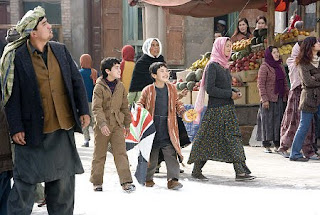
Today in class, we read three texts concerning Japanese English. Erle and I took notes from the texts and talked around the themes. I like working with tasks on my own or with classmates. Therefore, this was a terrific way to lean about the developing of Japanese English. If I could have done something differently, I would have discussed the themes even more.
The first text was about the developing of Japan. Japan surrendered after World War 2, and after six years of American occupation the Japanese society and culture were compared to “a boy of twelve”. Now, the Japanese have adapted to the western society, and have had a huge growth within comics and technology. They have actually gone by us when it comes to technology within computers and cars.
Japan is also big within Manga and Anime (Japanese comics and animated films). These days we can see Japanese cartoons on western television, like pokémon and digimon. Manga is copied and used in videogames, music videos and advertising agencies. Manga has dominated the 20th century. The fascination of Manga and Anime lies in the thought of the future and its technology. Manga and Anime are not only pure fun, but bring up important questions concerning the world today.
The second text was about the triumph of Japanese English. The Japanese study English grammar thoroughly and often understand it better than the native speakers. An example of this is the English native speakers’ problems choosing between “who” and “whom”. They don’t know which one to use, but the Japanese do.
The third text was about English in South-East Asia. India is one of the oldest civilizations in the world, and was a British colony until 1947. Hindu is the official language, but English is an “associate” official language. It’s an important language for the national, political and commercial communication. India has been exposed to English longer than any other countries where it is a second language, and 1/3 of the population can carry a conversation in English. Indian English has developed distinctive words, idioms, grammar, rhythms and is constantly changing. Mastering English has become a passport to success in India.
English does only have a short story in China. For a long time, China deliberately shunned contact with the west to minimize foreign influence on its people. After the establishment of new China in 1949, Russian was the only foreign language taught in the country. A national campaign against American imperialism and British colonialism branded English unpatriotic. In the 1970s, English became the main foreign language in Chinese schools. The Chinese now regard English primarily as a necessary tool that can facilitate access to modern scientific and technology advances to countries where English is the major language. Today, the number of people studying English in China is much larger than the combined population of all countries where English is the mother tongue.
Japan was never a British colony, but British engineers were involved in developing Japanese infrastructure in the 19th century. The borrowing of western words causes some pronunciation problems in Japan, as the Japanese language doesn’t have sounds like “f” and “v”, and doesn’t distinguish “I” and “r”.
Photo from this site


